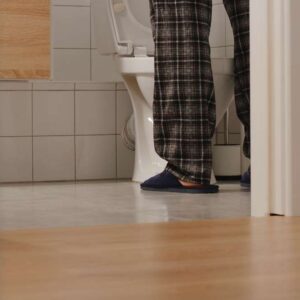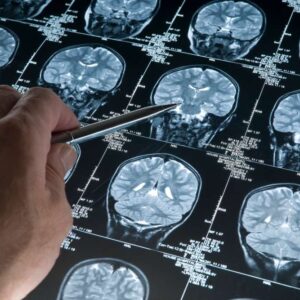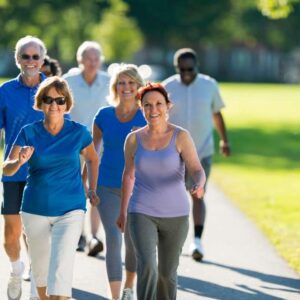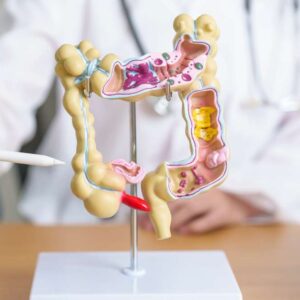
Childhood Pastime “Rewires” the Parkinson’s Brain?
If you or someone you love is living with Parkinson’s disease, you know how relentless it can be.
The stiffness. The tremors.
The way even small, everyday tasks—buttoning a shirt, pouring a cup of coffee—can feel like a battle.
It’s more than just the physical symptoms, too. Parkinson’s changes the way the brain communicates with the body, often making movement harder, slower, and less predictable.
Over time, it can chip away at independence, confidence, and quality of life.
And while treatments can help manage symptoms, finding new ways to actually rebuild what’s been lost has always felt out of reach.
Parkinson’s disease disrupts the central nervous system, interfering with both movement and brain signaling. Over time, it can make everyday activities—like walking, speaking, or writing — more challenging.
But now, there’s encouraging new evidence that a surprisingly simple activity could help restore some of those damaged brain connections—not just slow their decline.
Researchers recently found that as few as 12 sessions of a specific form of exercise over four weeks helped repair neural pathways in people with Parkinson’s disease.
And the best part? This activity is something many of us learned to do in childhood: riding a bike.
The research, published in Clinical Neurophysiology, followed nine Parkinson’s patients who already had deep brain stimulation (DBS) devices. Over four weeks, they completed 12 sessions of “adaptive cycling”—where the bike adjusted resistance based on each rider’s effort.
By the end of the study, participants showed measurable changes in brain signals tied to motor control and movement. The findings suggest that exercise can trigger neuroplasticity—the brain’s ability to form new connections—even in areas damaged by Parkinson’s.
As lead researcher Dr. Aasef Shaikh explained, “This finding provided proof of principle that exercise changes the brain… but only when it’s done persistently and consistently.”
Exercise has long been recognized as one of the best non-drug therapies for Parkinson’s—but this study adds powerful evidence that it doesn’t just help the body…it can help retrain the brain.
And while cycling was the focus here, researchers believe other activities may offer similar benefits. The key is choosing something that challenges both your body and your brain—and sticking with it.
If you or a loved one has Parkinson’s:
- Stay active daily—Walking, swimming, or tai chi can all help with balance and coordination.
- Engage the brain—Dancing, boxing, or learning new movements may help stimulate neuroplasticity.
- Be consistent—The benefits build over time, so set a regular schedule.
- Work with your doctor—Especially if you have balance issues, get guidance on safe exercise options.
Parkinson’s may change how the brain works—but research shows we’re not powerless. With consistent, targeted movement like cycling, we might be able to help the brain reconnect in ways once thought impossible.
P.S. Ancient hack helps Parkinson’s patients sleep better.
Source:
Prajakta Joshi, et al., Electrophysiological correlates of dynamic cycling in Parkinson’s disease, Clinical Neurophysiology, Volume 174, 2025, Pages 17-27, ISSN 1388-2457, DOI: 10.1016/j.clinph.2025.03.018
Written By Dr. Scott Olson, ND
Nearly 25 years ago, failed mainstream medical treatments left Dr. Olson in constant pain – and his health in ruins. And that’s when he did something REVOLUTIONARY. He began his career in medicine – and dedicated his life to uncovering the true, underlying causes of disease.
Through his innovative medical practices in Tennessee and Colorado, Dr. Olson has helped cure countless seniors from across America of arthritis… heart disease… diabetes… and even cancer. All without risky prescription drugs or painful surgeries.
View More Free Articles
Mailbag: End Midnight Bathroom Runs with These 6 Natural Fixes
“Thank you for your Living Well Daily newsletter! Can you please share any thoughts on how to support prostate health? Especially getting up and going to the bathroom twice a night. The stream is not as strong as it once was; it takes longer to empty. Thanks!” —Night Shift Hi Shift, Thank you for being...
The Brain Secret That DEFIES Aging
We’ve all heard the bad news when it comes to brain aging—shrinking volume, fading memory, slower reaction times. But new research from the German Center for Neurodegenerative Diseases (DZNE) delivers an unexpected—and uplifting—twist. Parts of your brain don’t just resist the aging process… they can actually get stronger. Let’s take a closer look… In a...
The Simple Secret to Better Health (No Gym Membership Required)
Let’s be honest—fitness culture is downright exhausting. You’ve probably encountered those ultra-dedicated exercise enthusiasts who turn every conversation into a masterclass on extreme workouts. They’re the ones posting their 5 AM CrossFit sessions and talking about their latest “beast mode” routine. And hey, good for them! But here’s the thing—you don’t need to become a...
Could This Gut Bug Outperform Ozempic?
Unless you’ve been living under a rock you’ve likely heard of Ozempic and similar GLP-1 drugs. They’ve been making headlines for their ability to help with blood sugar control—and, in many cases, weight loss. If you’re overweight or diabetic you may have even considered taking a GLP-1. But these drugs aren’t perfect. They can be...
Mailbag: 5 Tips to Dodge the Fall COVID Spike
“COVID is spreading through my family like wildfire. We’re thinking it’s the latest variant. Are there any new recommendations for protecting yourself against it? My spouse and I have tested negative so far, but we want do everything we can to dodge it this time around.” –Dodging Variants Hi Dodging, The “Nimbus” variant (NB.1.8.1) has...
The Sweet Deception Raising Your Diabetes Risk
You’ve probably seen the commercials… A trim person cracks open a can of diet soda and smiles about the healthy choice they’ve made. After all, no sugar, no calories—what’s not to like? But according to a new study, that seemingly “smart” swap might be quietly sabotaging your health. Researchers from Australia and the Netherlands have...
The Dirty Truth Lurking in Your Laundry Basket
If you’ve ever peeled off a pair of socks after a long summer day and caught a whiff of something foul… you’re not imagining things. That smell? It’s not just sweat. It’s the result of a full-blown microbial party happening between your toes. And for seniors—especially those with diabetes or compromised immune systems—this isn’t just...
STRANGE Sleep Fix Sitting in Your Fridge Right Now
It’s not the kind of advice you hear every day… “Sleeping poorly? Eat more fruits and veggies.” From counting sheep to weighted blankets, people have come up with countless ways to try to get a good night’s rest. But what if the solution to better sleep has been sitting in your produce drawer all along?...
The Hidden Dangers of Polypharmacy
Lately, I’ve had patients coming to see me with shopping bags full of medications(yes, actual shopping bags), often prescribed by different doctors who never talk to each other. If you’re like most folks our age, your medicine cabinet resembles a small pharmacy—a few prescriptions here, some over-the-counter (OTC) remedies there, and maybe a handful of...
The Diverticulitis Surprise NO ONE Saw Coming
Sometimes the hardest thing to do is let go of advice you’ve been giving for years. For decades, I’ve told patients at risk for diverticulitis to avoid nuts and seeds like the plague. Why? Well, because that’s what every doctor tells their patients. It’s what I learned in medical school, what I read in textbooks,...









